Feminist Writers Don't Care That Everyone Hates Their Female Characters, But They Should
The one quality that far too many strong female leads have these days? They’re terrible examples for young women.

Long gone are the days of the bulk of female characters being that of a Donna Reed archetype, or an oversexualized ditzy blonde, or an underdeveloped romantic interest for a far more gripping male character. No, these days, we’re focusing more closely on bringing strong, independent, intelligent female characters to life, searching for ways to represent a wider variety of women onscreen.
While the depiction of such women was truly needed, a long overdue step in the right direction, this development hasn’t come without its drawbacks. On our quest to create more captivating onscreen women, we’ve fallen into a trap — so many of the female characters we’re supposed to look up to as feminist icons and heroines are just… unlikeable. But what’s making them so?
What Makes These Characters Awful
A cursory glance at our most popular female characters reveals a bevy of selfish, callous, and often morally questionable women. Olivia Pope (Scandal), while regarded as the ultimate working woman, fiercely independent and professional, is no more than a detached, harsh, lonely alcoholic whose long-term affair with a married man (who also happens to be the President) is presented to viewers as exciting.
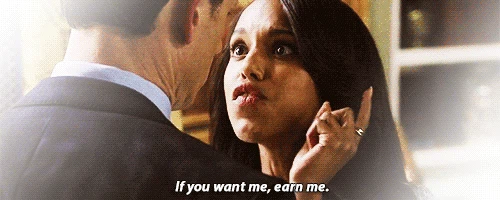
Fleabag, despite being witty, raw, and extraordinarily well-written, depicts a woman whose self-absorption, immaturity, and risky behavior are seen less as shortcomings to overcome, and more as funny traits that make her relatable.
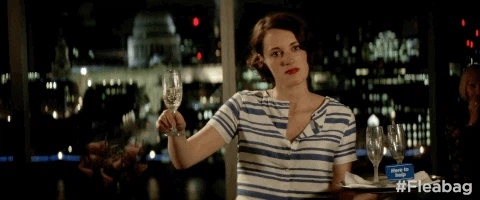
Hannah Horvath (Girls), a sadly authentic representation of Millennials, struggles with very real problems of young people today, and fails to grow out of her narcissism, laziness, and foolishness.
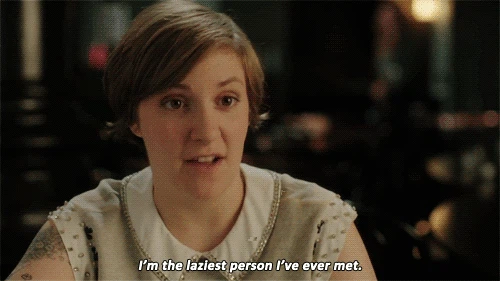
Although every character, being a realistic portrayal of a complex human being, deserves time to develop and mature, a majority of culture’s favorite onscreen women exhibit traits that we might consider toxic if possessed by a male character — a seemingly problematic result if viewers are supposed to like the character…and we are supposed to like them, right?
But Do They Have To Be Likeable?
With the rise of such female characters has come the narrative that women don’t have to be likeable, that any utterance of a word such as bossy, difficult, or aggressive to describe a woman is nothing more than a misogynistic label, attempting to subdue a strong woman. While there’s certainly some truth to that, the notion that the likability of these female characters is wholly unimportant presents an issue.
Every character serves a different purpose — we know we’re supposed to root for the hero and detest the villain, hating everything they stand for. The issue with these overtly selfish and hardened female heroines is the fact that they don’t possess redeeming qualities, never growing into a woman we’d want to emulate or have sympathy for, while still being presented to viewers as their heroine.
The issue with these selfish, hardened heroines is the fact that they don’t possess redeeming qualities.
And while every audience loves a rough character turned good (think Tony Stark starting out as a playboy and eventually becoming a man who sacrifices himself for the greater good), many onscreen female characters aren’t ever challenged to become good, instead being applauded for living by their own personal moral compass, failing to take responsibility for their actions, and living entirely for themselves — all in the name of feminism.
The Media We Consume Will Change Us
We might say, “It’s just a TV show,” but we’d be lying to assert that the media we consume doesn’t affect or influence us at all. As stated by Melissa Duclos in Bustle’s breakdown on the unlikability factor of feminist characters: “When we embrace characters who are angry and outspoken…who occasionally make bad decisions that they refuse to justify, and who are not taught a lesson, we make room for real women to do the same.”
Studies have found differences in women’s behavior based on the amount of television they consume.
Our favorite TV shows and characters ultimately have a huge impact on our personal lives. Studies have found differences in women’s behavior, including their reproductive decisions, based on the amount of television they consume. A study from Ohio State University concluded that it’s not uncommon to imitate the traits of our favorite characters. This can help us better understand a character whose life is entirely different from our own, but it can also lead us down the dark path of finding an imperfect character who resonates with us and excusing, or even emulating, their destructive behavior.
Villains Aren’t Always Bad (for the Story)
Of course, the depiction of a villain – a truly unlikeable character – is important for a well-rounded story. Regina George (Mean Girls), one of our generation’s most infamous antagonists, is the embodiment of toxic femininity and warns of the destruction that a girl like that can leave behind.
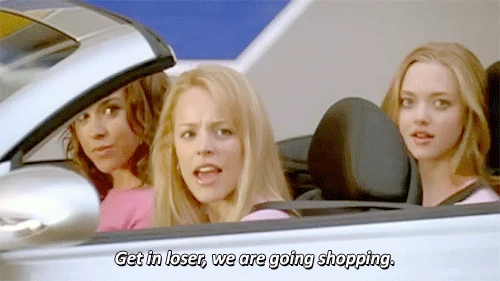
Miranda Priestly (The Devil Wears Prada) shows us the downsides of a career-obsessed woman whose icy, ruthless attitude leaves her lonely, having nothing in her life but a taxing career.
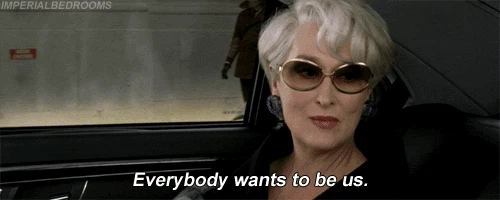
Amy Dunne (Gone Girl) illustrates the dangers of a cunning, pathological liar who looks like she wouldn’t hurt a fly.
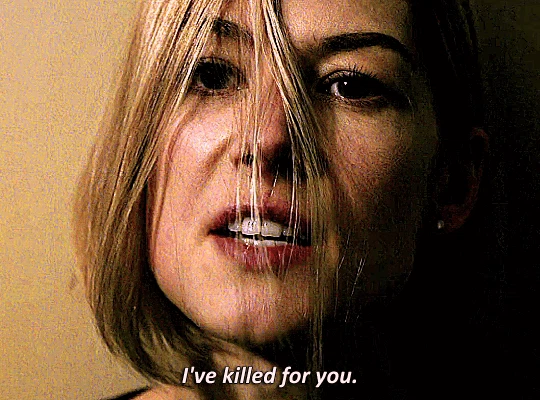
While each of these women are complex, and viewers are given a glimpse of their life’s trials and tribulations that likely contributed to their hardened hearts, we still know their behavior is wrong; we walk away understanding what made them unlikeable, miserable, or evil, and why we wouldn’t want to see any of them reflected in ourselves.
Even though it’s essential that art represents life accurately — the good and the bad — we can’t ignore that a writer’s intentions when creating a character, whether or not this character should be given sympathy or glorification, are also deeply important to consider. It’s without a doubt that we’re influenced by what we consume, which makes it all the more critical that we don’t glorify a female character’s bad behavior simply because she’s presented as our heroine.
Closing Thoughts
The representation of independent, tenacious, and complex women is deeply important. But unfortunately, we’ve lost our way on our quest to achieve this, instead lowering the bar for our heroines and glorifying the very worst qualities a woman can offer.